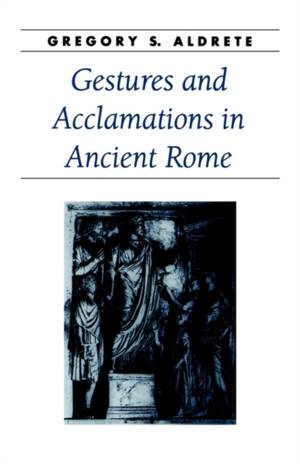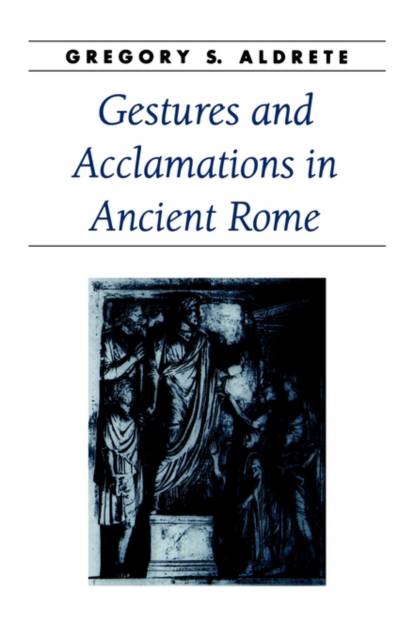
- Afhalen na 1 uur in een winkel met voorraad
- Gratis thuislevering in België vanaf € 30
- Ruim aanbod met 7 miljoen producten
- Afhalen na 1 uur in een winkel met voorraad
- Gratis thuislevering in België vanaf € 30
- Ruim aanbod met 7 miljoen producten
Omschrijving
Life in Rome was relentlessly public, and oratory was at its heart. Orations were dramatic spectacles in which the speaker deployed an arsenal of rhetorical tricks and strategies aimed at arousing the emotions of the audience, and spectators responded vigorously and vocally with massed chants of praise or condemnation. Unfortunately, many aspects of these performances have been lost. In the first in-depth study of oratorical gestures and crowd acclamations as methods of communication at public spectacles, Gregory Aldrete sets out to recreate these vital missing components and to recapture the original context of ancient spectacles as interactive, dramatic, and contentious public performances.
At the most basic level, this work is a study of communication--how Roman speakers communicated with their audiences, and how audiences in turn were able to reply and convey their reactions to the speakers. Aldrete begins by investigating how orators employed an extraordinarily sophisticated system of hand and body gestures in order to enhance the persuasive power of their speeches. He then turns to the target of these orations--the audience--and examines how they responded through the mechanism of acclamations, that is, rhythmically shouted comments.
Aldrete finds much in these ancient spectacles that is relevant to modern questions of political propaganda, manipulation of public image, crowd behavior, and speechmaking. Readers with an interest in rhetoric, urban culture, or communications in any period will find the book informative, as will those working in art history, archaeology, history, and philology.
Specificaties
Betrokkenen
- Auteur(s):
- Uitgeverij:
Inhoud
- Aantal bladzijden:
- 256
- Taal:
- Engels
- Reeks:
Eigenschappen
- Productcode (EAN):
- 9780801877315
- Verschijningsdatum:
- 1/09/2003
- Uitvoering:
- Paperback
- Formaat:
- Trade paperback (VS)
- Afmetingen:
- 140 mm x 216 mm
- Gewicht:
- 331 g

Alleen bij Standaard Boekhandel
Beoordelingen
We publiceren alleen reviews die voldoen aan de voorwaarden voor reviews. Bekijk onze voorwaarden voor reviews.







